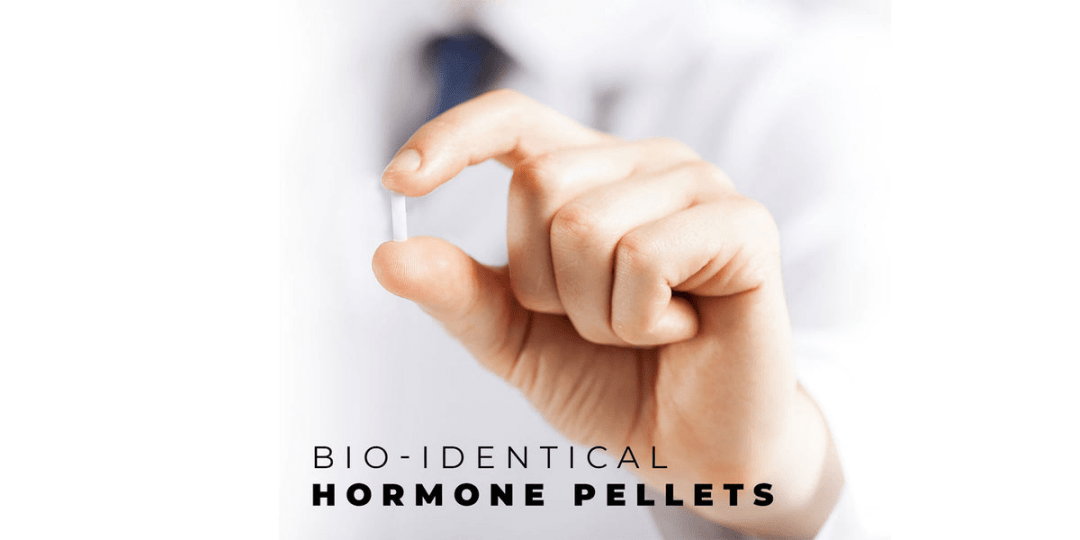How Hormone Pellet Therapy Can Improve Quality of Life

As you age, your bodies naturally produce less of certain hormones. This decline can lead to symptoms that greatly impact your quality of life. Fortunately, hormone replacement therapy (HRT) offers a solution for many people. But with various HRT options available, how do you know which is right for you? This article explores hormone pellet therapy, a unique and increasingly popular method for HRT, to help you decide if it might be the key to regaining your balance.
Understanding Hormone Decline and Its Effects:
The hormones play a vital role in regulating numerous bodily functions. Estrogen and testosterone, for example, influence energy levels, mood, metabolism, and sexual health. As you age, the production of these hormones naturally declines. In women, this decline is most pronounced during menopause, typically between the ages of 45 and 55. Men, on the other hand, experience a more gradual decrease in testosterone levels throughout their lifespan, often referred to as andropause.
The symptoms of hormone decline can vary depending on the individual and the specific hormones affected. However, some common issues include:
These symptoms can impact your daily life, leaving you feeling drained, frustrated, and disconnected from yourself.
Traditional HRT Options and Their Limitations:
Traditional HRT comes in various forms, including pills, creams, gels, and patches. These methods deliver synthetic hormones, aiming to replace the declining levels in the body. While they can be effective in mitigating symptoms, there are some limitations to consider:
Fluctuations in Hormone Levels: Oral medications can lead to spikes and dips in hormone levels throughout the day, potentially causing side effects.
Delivery Methods: Creams, gels, and patches may have inconsistent absorption rates, impacting effectiveness.
Bypassing the Digestive System: Oral medications can strain the liver as the digestive system processes them.
Understanding This Therapy:
It offers a unique approach to HRT. Here's a breakdown of this method:
The Pellets: Tiny pellets, typically made from bioidentical hormones (hormones with a similar molecular structure to those produced by the body), are used in this therapy.
The Procedure: A healthcare professional inserts these pellets during a simple in-office procedure. The insertion site is usually the buttocks or hip area. The method is minimally invasive and typically involves local anesthesia.
The Release: Once inserted, the pellets slowly release hormones into the bloodstream over several months, providing a steady and consistent dose.
Potential Benefits of This Therapy:
Compared to traditional HRT options, hormone pellet therapy offers several potential advantages:
Consistent Hormone Levels: The continuous release from the pellets helps maintain stable hormone levels throughout the day, potentially reducing side effects associated with fluctuations.
Reduced Dosing Frequency: With pellets lasting for several months, the need for frequent medication administration is eliminated.
Bypassing the First-Pass Effect: Unlike oral medications, pellets release hormones directly into the bloodstream, avoiding processing by the liver.
Potential for Improved Sexual Function: Studies suggest it may improve sexual function in both men and women experiencing a decline due to hormonal changes.
Exploring if it is Right for You
While it offers promising benefits, it's important to remember that it's not a one-size-fits-all solution. Here are some factors to consider when deciding if it's right for you:
Your Health: Discuss your medical history and current health status with your doctor. Certain medical conditions may make hormone therapy unsuitable.
Your Symptoms: Be aware of the specific symptoms you want to address through HRT.
Your Expectations: Hormone therapy is not a magic bullet. Discuss realistic expectations with your doctor regarding symptom improvement and potential side effects.
It's crucial to find a qualified healthcare professional experienced in this therapy. They can assess your needs, determine if you're a good candidate for this therapy, and monitor your progress throughout treatment.
Summing it Up:
In conclusion, hormone pellet therapy presents a unique option for individuals seeking relief from symptoms associated with hormonal decline. Offering potentially more stable hormone levels and a convenient dosing method can improve the quality of life for many people.
However, the decision to pursue this therapy or any form of HRT should be made in consultation with a qualified healthcare professional. They can guide you through the process, address your needs and concerns, and ensure the chosen HRT approach is safe and effective.
Remember, taking charge of your health includes asking questions, understanding your options, and advocating for yourself. With open communication and a collaborative approach with your doctor, you can explore if it can help you regain balance and live a more fulfilling life.